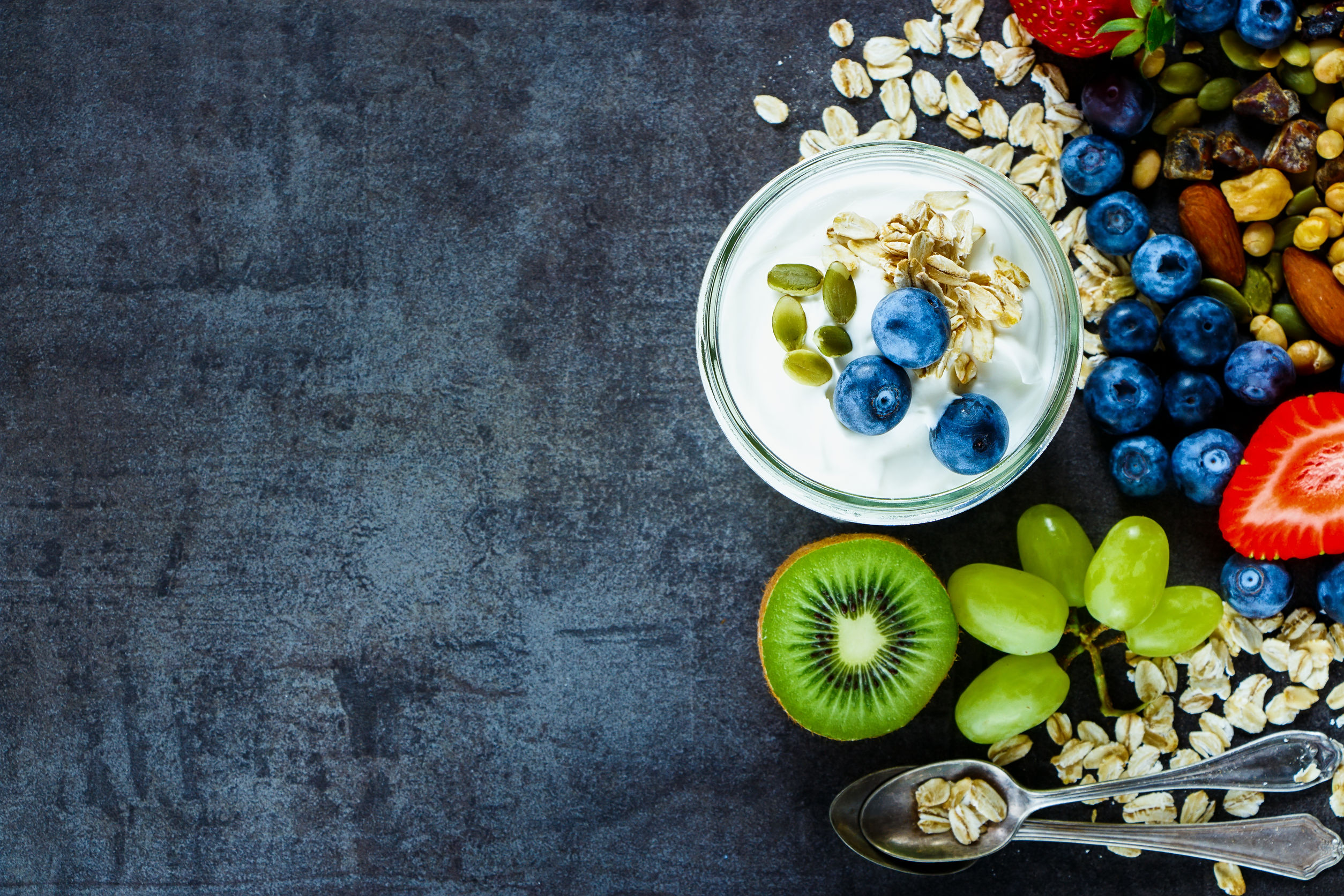”Michigan, do you eat breakfast? Some experts believe in the importance of breakfast while others do not think it's necessary for overall health. This week's article discusses the pros and cons of having breakfast. Enjoy!
Reading time: 8 Minutes
MWi Hacks:
- Use this article to decide if eating breakfast will support your wellness goals
- Learn the pros and cons to eating breakfast
MWi Summary:
- There is debate over whether it is better to eat or not eat breakfast.
- The reported pros and cons of eating breakfast include weight control, increased energy levels, and other health and psychological benefits.
- Your decision to have breakfast should be based on your personal hunger levels, total caloric intake, meal size preferences, and workout considerations.
“Eat breakfast like a king, lunch like a prince, and dinner like a pauper.”
For many years, breakfast has been regarded by many as the most important meal of the day.
We have all been told – by our parents, teachers, and numerous health professionals – that we should always start the day with a healthy, nutritious breakfast.
Breakfast, it was promised, would help kick-start our energy levels – giving us the proper foundation for a productive, successful day.
Indeed, there are entire companies (think Kellogg’s), devoted almost exclusively to producing and advertising breakfast foods.
And certain foods, like eggs and oatmeal, are traditionally only consumed at breakfast.
As you might expect, all of this translates into a whole lot of people having very strong views on eating breakfast!
In fact, if you were to even suggest forgoing breakfast to certain people, they would look at you like you were crazy.
At the same time, there appears to be a growing number of breakfast skippers, who feel, for a variety of reasons, that their lives benefit from not eating until later in the day.
So who is right in this debate?
Should we listen to the traditionalists who tell us breakfast is essential, or the growing number of people who turn their back on the king of meals and urge us to try their lifestyle?
In this article, I will attempt to address these questions, looking at both the pros and cons of including breakfast as a core pillar of your diet, and hopefully making some useful conclusions along the way.
What The Pro Breakfast People Say
When you really break it down, there are 4 main reasons that people typically believe that breakfast is important.
Aside from the energy claim that I mentioned above, champions of breakfast also believe that regularly eating it helps you lose weight, in addition to offering various health benefits and providing the psychological grounding for an effective day.
Let’s briefly take a look at each of these claims.
Weight Control
One of the main arguments used in favor of having breakfast is that it’ll help you maintain a healthy weight.
What’s more, eating breakfast can allegedly cause you to lose weight faster than if you were to skip it.
This claim is based on the long-held assumption that eating in the morning increases your metabolic rate, causing you to burn more calories throughout the day. Also, it can help people feel fuller for longer, thereby making it less likely that you’ll overeat.
Boost Of Energy
Another reason that people advocate eating breakfast is that they feel it provides a stable foundation of energy for the day ahead.
This is especially true for people with low blood sugar, who often feel pretty lousy if they don’t eat breakfast.
To these people, the thought of getting by on just coffee and water until lunch time is almost unthinkable.
Heath Benefits
As I mentioned above, there are a number of health benefits that have been associated with eating breakfast.
These include it being good for your heart, and maintaining low blood pressure and cholesterol levels, just to name a few.
Psychological
Finally, some people just really, really enjoy the ritual of eating breakfast!
Whether this is a result of formative habits – or just that they use it as a quiet time to read the newspaper – many breakfast eaters savor the morning routine that breakfast provides.
In fact, for some people, breakfast serves as a mini reward for getting out of bed and starting the day.
What The Anti Breakfast People Say
Now on the other side of the breakfast argument, there are a growing number of people that have happily cut this meal out of their lifestyle.
Yes, instead of getting their 3 square meals, they’ll typically opt for just 2 instead: lunch and dinner.
Why do they choose to do this?
There are actually a whole bunch of reasons – let’s take a look.
Weight Control
That’s right, breakfast naysayers believe that skipping it can help them lose weight, and avoid packing on unwanted pounds.
There are various reasons for this claim, and many of them overlap with the benefits of fasting in general.
For one, when you skip breakfast, it effectively gives you more calories to work with later in the day.
This means that if you eat the same size lunch and dinner, you’ll be taking in considerably fewer calories than if you ate breakfast as well – amounting to at least 500 calories saved per day, if not more. This assumes that you don’t eat more calories later on to make up for not eating breakfast, of course, which is a fairly big assumption.
Secondly, there are supposedly metabolic benefits to skipping breakfast, and fasting in general, as a result of the increased lipolysis that occurs due to the low amount of insulin in the blood. Advocates of fasting claim that this puts your body in a ‘fat burning mode’ during these periods.
Finally, there are also those who claim that eating breakfast actually increases their appetite, making them more likely to consume a greater number of calories later in the day. These people find that they are less hungry if they skip the meal entirely.
Boost Of Energy
It has been demonstrated that fasting for periods of time can help people feel more energized and clear headed.
When you skip breakfast, you are effectively prolonging the fasted state that your body entered while sleeping.
This means that the focused clarity that’s linked to fasting can help to power you through the first part of your day.
Health Benefits
Many of the same health benefits that we discussed above are also surprisingly associated with fasting as well.
We’re talking about lower blood pressure, a decrease in blood cholesterol, and a reduced risk of heart disease.
Saves Time
Finally, breakfast skippers often claim that eliminating this meal from their mornings simplifies their life.
Instead of having to worry about breakfast in the morning, they can just get going with their day, only needing to think about food for the first time when lunch rolls around.
Depending on your perspective, this can be quite liberating and help you make the most of those morning hours.
What The Evidence Says
OK, so far what we’ve discussed is pretty much just conjecture.
And while I hope this has shown the variety of dissenting opinions that people have about breakfast, it does little to get to the heart of the matter.
That is, should you be eating breakfast or not? Is it actually important?
Well, to truly get to the bottom of this, one needs to take a look at some of studies that have been done on eating breakfast, and the conclusions that people have drawn from them over the years.
You see, there have been a number of studies that demonstrate that there is an association between breakfast skipping and higher body weights. Here is one of the large scale studies that is often citied.
The researchers draw the conclusion that breakfast skippers generally demonstrate dysregulated eating habits in general. This means that instead of eating at fixed times, they’ll tend to just eat randomly throughout the day. Here is a quote from a researcher involved with the study:
“These groups appear to represent people ‘on the run,’ eating only candy or soda, or grabbing a glass of milk or a piece of cheese. Their higher BMI would appear to support the notion that ‘dysregulated’ eating patterns are associated with obesity, instead of or in addition to total energy intake per se.”
As you can see, the researchers from this study – and others that have adopted similar testing methodologies – have concluded that people with dysregulated eating habits tend to consume too many calories, and therefore tend to be overweight.
And, of course, since being overweight is associated with all sorts of heath risks – including heart disease and higher levels of cholesterol – there is an associative connection there too.
Not surprisingly, those with a vested interest in this – namely, companies that manufacture breakfast foods – have taken hold of these studies and have served them up to us over the last few decades in countless commercials.
However, when you look purely at the data, you’ll see that the evidence from these studies hardly confirms that skipping breakfast makes you fat or leads to health issues; rather, all you can see is that the type of people who often skip breakfast – people that eat in a haphazard, dysregulated way – tend to also be overweight and develop health issues.
Now let’s move on to the next major claim in favor of breakfast – that is, that eating breakfast gives you a stable boost of energy to start the day.
This argument is grounded in the fact that people are the most insulin sensitive in the mornings, and insulin has a large role in how much energy you have or if you feel tired.
Without getting too much into it, insulin helps to control your blood sugar. When your blood sugar levels spike, you tend to feel tired. When your blood sugar levels are stable, you’ll feel a more balanced sense of energy.
Since your body is more insulin sensitive in the morning – which means that insulin is more effective at controlling blood sugar properly – breakfast is arguably the meal least likely to cause disruptions in your blood sugar levels.
In theory, all of this is true. However, in making the determination that we should all be eating breakfast because of this, we are completely missing the bigger picture.
You see, while we are more insulin sensitive in the morning, this has nothing to do with breakfast.
In fact, we are always more insulin sensitive after a lengthly period of fasting, which for most people is the 8 or so hours that they’ve been sleeping.
This is because insulin sensitivity is increased when your body has depleted its glycogen stores. When you wake up in the morning, your liver glycogen levels are somewhat depleted, which means that you are resultantly more insulin sensitive.
But there is nothing at all about this particular time in the morning that makes breakfast special. Exactly the same thing would happen if you didn’t eat for 8 hours at any other point during the day.
So, then, what we should really be looking at is the first meal that you eat each day; the meal that effectively breaks your fast.
If you eat breakfast, then that will be your first meal.
On the other hand, if you choose to fast longer and skip breakfast, then lunch will be your first meal.
In both situations, your insulin sensitivity would be relatively high. It doesn’t matter if you had that meal at 8 in the morning or 1 in the afternoon.
So What Should You Do?
As you can see, much of the evidence supporting the importance of breakfast is pretty questionable – with all sorts of determinations being made based on loose, associative connections.
So where does this leave us, then?
Basically, you should not treat breakfast as something that you need to have. It simply isn’t necessary, despite what you may have been told to the contrary.
At the end of the day, the decision about whether to have breakfast should be a personal one.
In my opinion, there are 4 main factors to consider when deciding whether or not to regularly eat breakfast: your hunger levels, your total caloric intake, whether you prefer bigger or smaller meals, and if you work out in the morning.
I’ll now quickly go through how I would consider each of these factors.
Your Hunger Levels
This can be highly variable from person to person. Some people can cut out breakfast and feel very little hunger, taking just a couple days to get used to the change.
Other people simply do not tolerate it as well, and deal with persistent hunger issues even after they have given their body time to adjust.
Again, insulin seems to be playing a role here. For more insulin resistant people, who tend to have higher levels of body fat, not eating breakfast will often lead to greater hunger issues.
Conversely, people with greater levels of insulin sensitivity, who are generally leaner, tend to experience far fewer issues with hunger.
This is the likely explanation for why advocates of fasting often believe that it helps them feel fuller for longer.
People who are conscious enough about their diet to adopt fasting properly will also be likely to have higher levels of insulin sensitivity, which would have the effect of blunting hunger for them later in the day.
Your Total Caloric Intake
If you are trying to limit your calories – say, eating only 2000 calories a day – then not eating breakfast will allow you to have 2 substantial 1000 calorie meals later in the day (lunch and dinner), as opposed to 3 less satisfying 667 calorie meals (breakfast, lunch, and dinner).
When you are eating at a caloric deficit, I have often found that by eliminating breakfast you don’t feel nearly as deprived. You still get to enjoy large, satisfying meals that don’t feel restrictive in the slightest.
The opposite is true if you are bulking up, or have higher caloric requirements (lots of exercise, fast metabolism). In these cases, in order to comfortably fit in the calories, you may prefer to include breakfast to help distribute the large number of calories into a greater number of meals.
Meal Size Preference
I’ve found that most people tend to prefer either bigger or smaller meals.
There is no right answer here; it is just a preference.
So, if you are one of those people (like myself) who prefers larger, more substantial meals, than eliminating breakfast will be the easiest way to have this as part of your lifestyle, without consuming too many calories.
I get to have a big lunch and a big dinner. For me, this is greatly preferable to having 3 moderately sized meals.
However, I know many guys who genuinely prefer to have smaller, more frequent meals.
For them, having a smaller breakfast, lunch, and dinner – as well a few snacks throughout the day – is probably more suitable.
Workout Considerations
If you work out in the morning, then you have one more additional consideration.
You see, when you lift weights, you want to ensure that you have an adequate supply of amino acids to avoid muscle breakdown.
Guys usually accomplish this by having a protein shake before/after their workouts. However, this presents an obvious challenge if you want to work out during your morning fast.
The solution is thankfully fairly straightforward: you’ll just need to supplement with BCAAs, which will provide sufficient amino acids to avoid catabolism without breaking your fast.
A Final Word
As you may have gathered, I am not a breakfast eater.
I prefer to fast for the first part of the day, breaking my fast with lunch at around 1pm.
I don’t have hunger issues, my energy levels are balanced, and I love that I get to eat at least 2 larger meals every day – even when I am running on a caloric deficit.
But this isn’t something that works for everyone, and I am far from being absolutist about the whole thing.
Some people function better with breakfast, other people don’t – so I would strongly recommend giving both approaches a try to see what works best for you.
At the end of the day, you should adopt the approach that makes it easier for you to maintain dietary compliance.
After all, when you really look at it, many of the various benefits that both sides of the breakfast debate like to claim are more a function of successfully encouraging dietary compliance than anything else.
One note: Something I call “pill fatigue” is real with many supplements, so try to get extracts and powders for shakes and smoothies. Some products provide shots or liquid options, like oils and probiotics, so do what you can to minimize the pills.
MWi would like to thank Chris Muir for writing this article and supporting our community with expert insights. Follow this link to read the original article:
Chris Muir
When I was younger, I ate whatever I wanted (mostly fast food), drank pretty much only sugary soda, and never, ever exercised. Not surprisingly, I didn’t look or feel very good – until one day I just got sick of it, and decided I needed to get myself into better shape.
I started CALIBER because I wanted to help people get stronger, leaner, and build bodies that they’re proud of. It has been very gratifying seeing so many of our clients share their incredible success stories and transformations.






